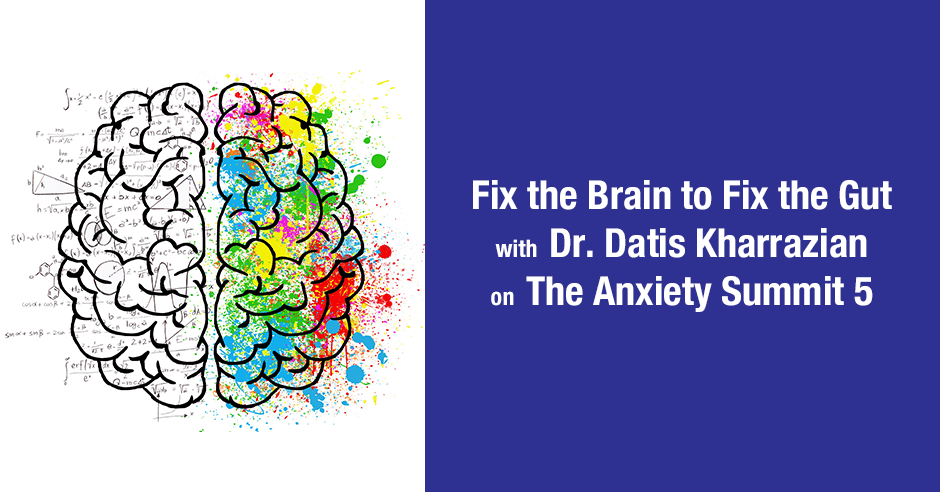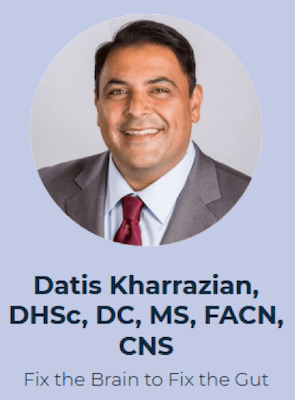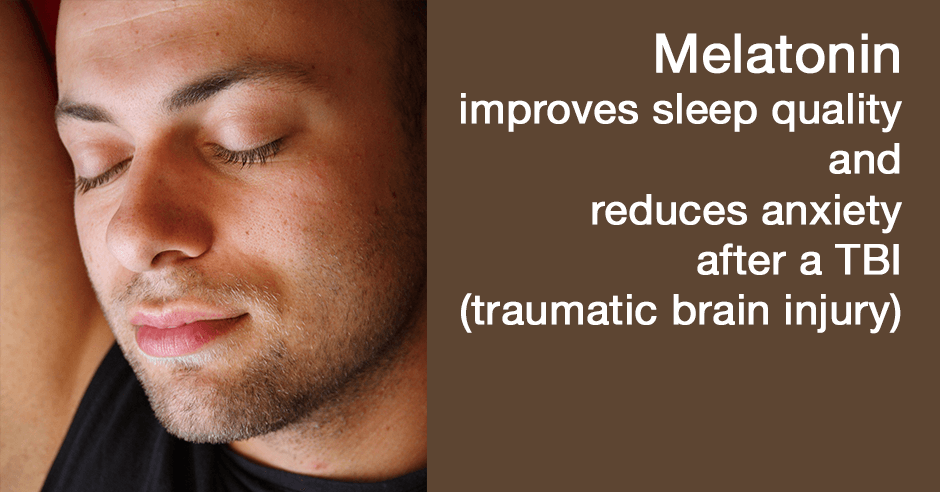
Datis Kharrazian, DHSc, DC, MS, FACN, CNS is one my guest experts on The Anxiety Summit 5: Gut-Brain Axis and our topic is: Fix the Brain to Fix the Gut. In this interview you’ll learn:
- Impact of brain injury and impaired vagal activity (as well as motility and breakdown of the blood brain barrier)
- Activate your neurons
- Polyphenols (for neuroinflammation) and butyrate for leaky gut/brain
We’re taught that “healing begins in the gut” and it’s a huge factor but in certain instances we need to do more before the gut can truly be healed. When you have had a traumatic brain injury/TBI, integrative functional neurology teaches that the brain has to be fixed for the gut to gut to work well. Dr. Kharrazian why this is important:
Someone can have a TBI and 10 or 15 years later they can experience brain and neurological symptoms – like depression and anxiety. These patients can end up with chronic GI issues as a consequence of the TBI because there is this intimate relationship between the brain and how it controls gut function.
In this interview you’ll hear how, after a TBI, the bidirectional gut-brain-microbiotia axis leads to structural and functional damage to the gut, increased intestinal permeability and an altered microbiome, an immune response and inflammation. There is also often impaired motility, breakdown of the blood brain barrier and impaired vagal activity (and much more).
Dr Kharrazian discusses aspects of this paper: The bidirectional gut-brain-microbiota axis as a potential nexus between traumatic brain injury, inflammation, and disease
- we will examine the extent to which the bidirectional influence of the gut-brain axis modulates the complex biological processes occurring at the time of traumatic brain injury (TBI) and over the days, months, and years that follow.
- In addition to local enteric signals originating in the gut, it is well accepted that gastrointestinal (GI) physiology is highly regulated by innervation from the CNS.
- Conversely, emerging data suggests that the function and health of the CNS is modulated by the interaction between 1) neurotransmitters, immune signaling, hormones, and neuropeptides produced in the gut, 2) the composition of the gut microbiota, and 3) integrity of the intestinal wall serving as a barrier to the external environment.
- Specific to TBI, existing pre-clinical data indicates that head injuries can cause structural and functional damage to the GI tract, but research directly investigating the neuronal consequences of this intestinal damage is lacking.
Dr. Datis Kharrazian is a clinical research scientist, academic professor, and a functional medicine health care provider. You likely are familiar with his work as the author of Why Do I Still Have Thyroid Symptoms? and Why Isn’t My Brain Working?
He is also the creator of several functional medicine and neurology online courses, and the founder of the Kharrazian institute, a post-graduate institute for functional medicine and restorative neurology. Earlier this year I attended his excellent Neuroinflammation training and decided I really wanted him on the summit to share an important an often overlooked aspect – integrative functional neurology.
What I found most surprising is that you don’t even have to have been concussed for a head injury to have an impact on your gut! The serious consequences of a head injury (and subsequent damage to the gut) is very much related to your blood sugar, nutritional status and stress levels at the time of the fall or head bang.
After learning all this it really got me thinking about the many falls I have had. I have never been concussed but I’ve been in a roll-over car accident, fallen hard snow-boarding, fallen sideways off my mountain bike onto rocks at Moab, and taken a really big pendulum fall when rock-climbing in Cape Town. Based on all this and my many chronic gut issues, I am going to have a full functional neurology assessment done and will report back as I learn more. I’ve completed Dr. Kharrazian’s questionnaire and it seems like I would really benefit from some neuro-rehab. I hope our interview gives you some insights too.
We also talk about one of my favorite topics: GABA and the controversial blood-brain-barrier question. I think you’ll really enjoy this discussion. Do let me know what you think!
We go on to talk about resveratrol, curcumin and butyrate, as well as some very practical neuro-rehab exercises he uses with his patients.
Please join us and listen to my interviews and all the others on The Anxiety Summit 5: Gut-Brain Axis.
If you’d like to give feedback or ask a question, please post in the comments section at the bottom.
I’d love to hear from you once you’ve listened in to Dr. Kharrazian’s interview and the others.



